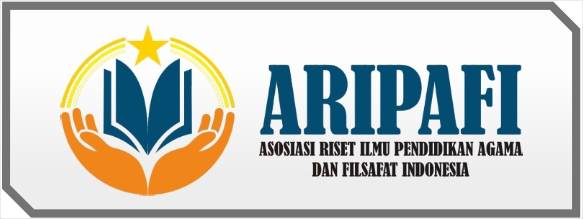Tinjauan Yuridis Tentang Konstruksi Tindak Pidana dalam Undang-Undang Informasi Transaksi Elektronik (ITE) Mengenai Pasal-Pasal Karet terhadap Pengaruh Impunitas Hukum
DOI:
https://doi.org/10.59581/garuda.v2i1.2422Keywords:
Rubber Clause, Legal Policy, Digital Represion, Digital Conflict, Freedom of ExpressionAbstract
Problems regarding legal justice in cases spread across cyberspace have given rise to paradigm shifts and conflicts in viewing the application of a legal system or product as a means of buying and selling to achieve certain goals such as personal satisfaction which can be very detrimental to other parties. The main focus of improving the ITE Law must be on flexible articles, with the main aim of protecting freedom of opinion as a crucial element in the survival of democracy. Articles that are susceptible to multiple interpretations require proof and data support, especially regarding sanctions for creators and spreaders of hoaxes. Therefore, input from various parties is very necessary to fulfill people's aspirations and answer the nation's needs in the future. Criticism that is based on facts must be respected, while criticism that is slanderous and provocative must face legal consequences. The ITE Law is not aimed at curbing freedom of opinion, but rather at responding to the actions of creators and spreaders of hoaxes, slander and provocation in society. The government is concerned that undemocratic electronic information regulation could undermine national unity and give free rein to unethical content creation. In fact, there are parties who systematically produce and spread content that contains hatred, based on SARA, pornography, radicalism and terrorism through the use of robots, with motives that can be political or economic.
References
Buku
Atmasasmita, Romli. 1996. Sistem Peradilan Pidana. Bina Cipta: Bandung.
Isharyanto, Adi. (2018). Sistem Peradilan di Indonesia dalam Teori dan Praktik. Prenadamedia
Moeljatno. (2007). KUHP (Kitab Undang-Undang Hukum Pidana). Bumi Aksara.
Susyanto. (2018). Pengantar Hukum Pidana. Deepublish.
Artikel Ilmiah
Sen, A. (1999). Development as Freedom.
Ramadhani, Defi Sri Sunardi, Noerdajasakti, Setiawan, & Sulistio, Faizin (2022). Kedudukan Surat Keputusan Bersama sebagai Pedoman Implementasi Pasal Penghinaan dan Pencemaran Nama Baik dalam UU ITE. Jurnal Ilmiah Pendidikan Pancasila dan Kewarganegaraan, 7(2), 376, ISSN 2527-8495, State University of Malang (UM), <https://doi.org/10.17977/um019v7i2p375-383>
Ningrat, Shinta Ressmy Cakra, & Nulhaqim, Soni Akhmad (2023). Pasal Karet UU ITE dan Penyelesaian Konflik Digital di Indonesia. Epistemik: Indonesian Journal of Social and Political Science, 4(2), 38-52, ISSN 2807-811X, PT Prisma Sintesa Konsultama, <https://doi.org/10.57266/epistemik.v4i2.158>
Suparman, Suparman, Asmara, Galang, & Zunnuraeni, Zunnuraeni (2023). Tinjauan Kritis Pasal 27 & Pasal 28 UU ITE Terhadap Kebebasan Pers. Jurnal Risalah Kenotariatan, 4(1), ISSN 2775-362X, Universitas Mataram, <https://doi.org/10.29303/risalahkenotariatan.v4i1.82>
Tan, Kendry (2022). Analisa Pasal Karet Undang-Undang Informasi Dan Transaksi Elektronik Terhadap Asas Kejelasan Rumusan. Jurnal Hukum Samudra Keadilan, 17(1), 14-29, ISSN 2615-7845, Universitas Samudra, <https://doi.org/10.33059/jhsk.v17i1.3376>
Mufid, Firda Laily, & Hariandja, Tioma Roniuli (2019). Efektivitas Pasal 28 Ayat (1) UU ITE tentang Penyebaran Berita Bohong (Hoax). Jurnal Rechtens, 8(2), 179-198, ISSN 2622-1802, Universitas Islam Jember, <https://doi.org/10.36835/rechtens.v8i2.533>
Pakpahan, Roida (2021). Analisa Implementasi Uu Ite Pasal 28 Ayat 2 Dalam Mengurangi Ujaran Kebencian Di Media Sosial. Journal of Information System, Informatics and Computing, 5(1), 111, ISSN 2597-3673, Sekolah Tinggi Manajemen Informatika dan Komputer Jayakarta, <https://doi.org/10.52362/jisicom.v5i1.465>
Sanubarianto, Salimulloh Tegar, & Firdaus, Winci (2022). Topik Perkara Pelanggaran Pasal 27 UU ITE di Wilayah Hukum Nusa Tenggara Timur: Analisis Wacana Kritis (Topics of Violations of Article 27 of the ITE Law in the East Nusa Tenggara Legal Territory: Critical Discourse Analysis). Indonesian Language Education and Literature, 8(1), 173, ISSN 2502-2261, IAIN Syekh Nurjati Cirebon, <https://doi.org/10.24235/ileal.v8i1.11286>
Nanda, Dhea Hafifa, & Hariyanta, Faishal Amirudin (2022). Problematika Operasionalisasi Delik Pasal 27 Ayat (3) Uu Ite Dan Formulasi Hukum Perlindungan Freedom Of Speech Dalam Ham. Jurnal Hukum dan Pembangunan Ekonomi, 9(2), 214, ISSN 2777-0818, Universitas Sebelas Maret, <https://doi.org/10.20961/hpe.v9i2.52779>
Ryadh Mega (2021). Tinjauan Yuridis Terhadap Pasal 28 Ayat (2) UU ITE (Studi Kasus : I Gede Ari Astina Alias Jerinx atau JRX ). Yustisia Merdeka : Jurnal Ilmiah Hukum, 7(1), 59-65, ISSN 2580-0019, LPPM Universitas Merdeka Madiun, <https://doi.org/10.33319/yume.v7i1.69>
Kumalasari, Tiara (2020). Konsep “Antargolongan” dalam Pasal 28 Ayat (2) Undang-Undang Nomor 19 Tahun 2016 Tentang Perubahan atas Undang-Undang Nomor 11 Tahun 2008 Tentang Informasi Dan Transaksi Elektronik (UU ITE). Media Iuris, 3(2), 199, ISSN 2621-5225, Universitas Airlangga, <https://doi.org/10.20473/mi.v3i2.20892>
Sutrisno, Bambang, & Paksa, FX Bhirawa Braja (2019). Penegakan Hukum Terhadap Tindak Pidana Pencemaran Nama Baik Menurut Pasal 27 Ayat (3) Undang-Undang Nomor 11 Tahun 2008 Tentang Informasi Dan Transaksi Elektronik (UU ITE). MIZAN, Jurnal Ilmu Hukum, 8(1), 20, ISSN 2301-7295, Universitas Islam Kadiri, <https://doi.org/10.32503/mizan.v8i1.495>
Sari, Syaidah Novia (2021). Konstruksi Tindak Pidana Berita Bohong (Hoax) Dalam Undang-Undang ITE. Badamai Law Journal, 6(2), 371, ISSN 2503-0884, Program Magister Kenotariatan Fakultas Hukum Universitas Lambung Mangkurat, <https://doi.org/10.32801/damai.v6i2.11813>
Cohen-Almagor, R. (2004). Freedom of Speech and Tolerance in the Netherlands: The Case of Ayaan Hirsi Ali. European Human Rights Law Review, (1), 27-45.
Undang-Undang
UU Informasi Transaksi Elektronik (ITE) No 11 Tahun 2008 jo 19 Tahun 2016.
Kitab Undang-Undang Hukum Pidana.
UU No 13 Tahun 2006 tentang Perlindungan Korban dan Saksi.
UU No 40 Tahun 1999 tentang Ketentuan Pokok Pers.
Situs Website
Azizah, Laeli Nur. — . Apa Itu Hukum Karet? Perjalanan Pasal Karet dan Problematikanya. Gramedia Blog, Digital Karya. Telah diakses pada tanggal 4 Desember 2023, dari Gramedia, Hukum Karet dan Pasal ITE
Herdiana, Iman. 2022. Draft Revisi UU ITE Memiliki Banyak Kelemahan, Pasal Karet masih Dipertahankan. Bandung Bergerak, Digital Karya Reportase. Telah diakses pada tanggal 4 Desember 2023, dari Artikel Bandung Bergerak, Draft Revisi UU ITE Masih Mempertahankan Pasal Karet
United Nations Human Rights Office of the High Commissioner. 2011. Freedom of Opinion and Expression. Diakses dari https://www.ohchr.org/EN/Issues/FreedomOpinion













